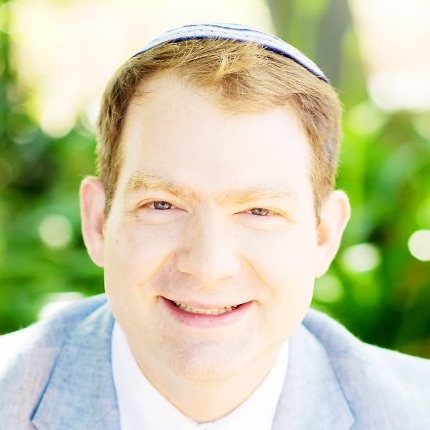click to dowload our latest edition
CLICK HERE TO SUBSCRIBE TO OUR NEWSLETTER


Published
6 years agoon
By
adminRABBI SAM THURGOOD
Carlebach was informed that he would be responsible for arguing the Orthodox position – that the Torah is, indeed, the direct word of G-d, as given to Moshe in the wilderness. He was not a man who loved debate, and would probably not have chosen such a forum given the choice, but here he was.
How does one tackle this issue in a way that spreads love and peace, and that brings all of us closer to Hashem, rather than serving to accentuate our differences and theological divides?
Carlebach began by posing a question: “Do you,” he asked the attendees, “believe that we need a Torah from Heaven? If we believe that we need the word of G-d to help us in our lives, then it is relevant to discuss whether or not we actually have such a word.
“However, if we don’t think we actually need the Almighty to tell us what to do, then what does it matter if we have a Torah from Heaven or not?”
He went on to explain that human beings are the only creatures in the world who have to learn how to be themselves. A kitten does not need to learn how to be feline, a newborn puppy is already a fully established canine, and a baby donkey finds it natural (like many people I have met) to be asinine.
However, if a person is not socialised, acculturated or educated in the ways of humanity, such a person will remain a beast. Animals, it seems, have all the inborn knowledge that they need, and spiders hatch from their tiny eggs with an inborn understanding of engineering (and, one could say, web design) that it takes us years to even understand, let alone emulate.
Recent research has shown that baby humans also have some inborn knowledge, such as the fact that three-dimensional (3D) objects are solid; that items, when dropped, should fall; and other fascinating principles of physics. However, still we clearly do not know, from day one, how to live and act as a human being in the world.
My mother and mother-in-law are both pre-school teachers, and I myself have spent a great deal of time in the pre-school classroom (today it is known as foundation phase) as I teach Lego Torah stories at Herzlia Alon Ashel each week.
So, I am very well aware of the fact that to teach three-year-olds, you need not only a teacher, but a ringmaster, a lion tamer. These children are wild! They do not always hesitate to bite or grab to get what they want. Pushing is simply a means to an end – a tendency that those familiar with a shul brocha can testify sometimes lingers well into adulthood). Also, concepts of sharing and thanking must be emphasised and repeated in order to be integrated.
British neurologist Dr Oliver Sacks makes an even more compelling point in his book, Seeing Voices, about deafness. He wrote that for so long, deaf people were considered to be intellectually disabled because before the invention of sign language, they actually were. Language is necessary, he proposes, to develop advanced and abstract thought. Those neural pathways in our brains responsible for high-level thinking actually do not develop in people who are never exposed to language in their childhood.
But even with all of this, socialising and education can only raise us to the level of what our Sages call “Derech Eretz” – living as good, decent people, effective in the world and with those around them.
However, Torah presents to us a higher level – that of holiness. We are called upon to be holy, to be connected to our Creator in a sanctified relationship. To interact with one another in a way that transcends utilitarianism, or even human altruism, but goes beyond ourselves. To see within ourselves not only an earthbound being, but a godly soul.
The Torah calls upon us not to take revenge or to bear a grudge. In human logic, such behaviour can be understood and even justified. But we are called to transcend that – and to know that Hashem keeps the record books.
He rewards and punishes, and we need not, and may not, carry grudges around with us, waiting to pay back all of the suffering that we have received.
We are called upon to rise above the usual conventions of work and productivity, on which so many of humankind are focused. We are called upon to give up a day of such productivity and surrender it to Hashem each week, in commemoration of His creation of all.
We are told that our diet should not be based on taste, or even only on good health, but that there are certain foods that are conducive to becoming a holy person – and others which are inimical to this goal.
There are levels that we can all achieve that go beyond the animal we would be without Derech Eretz. They even go beyond the human beings we can be with such values. Do we need a Torah from G-d? If we want to fulfil our full and ultimate potential for holiness in every area of our lives and in every relationship we have, we certainly do need this.
Chag Sameach!
